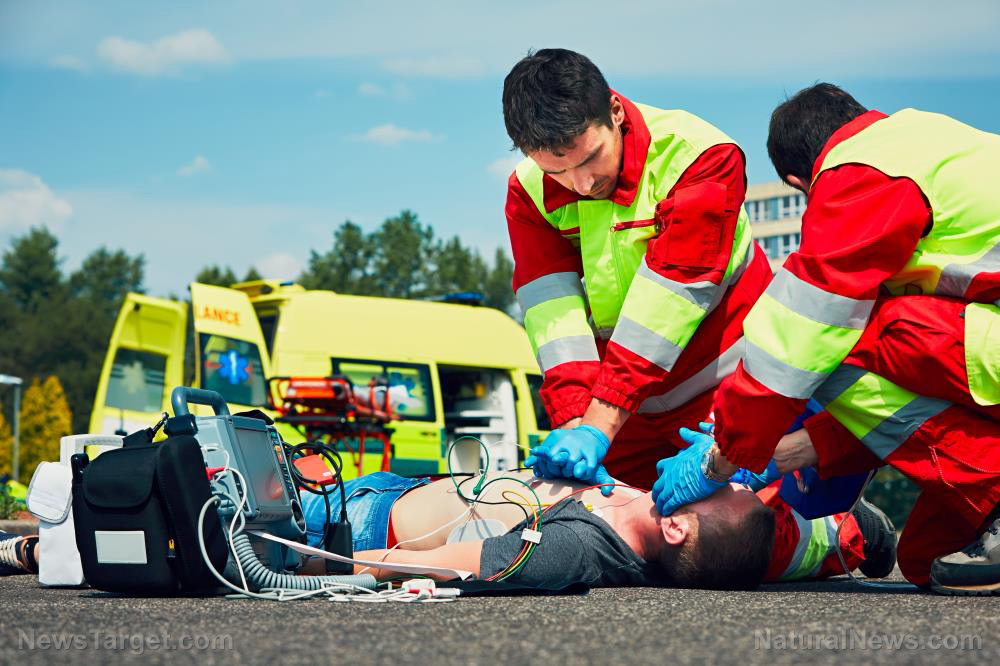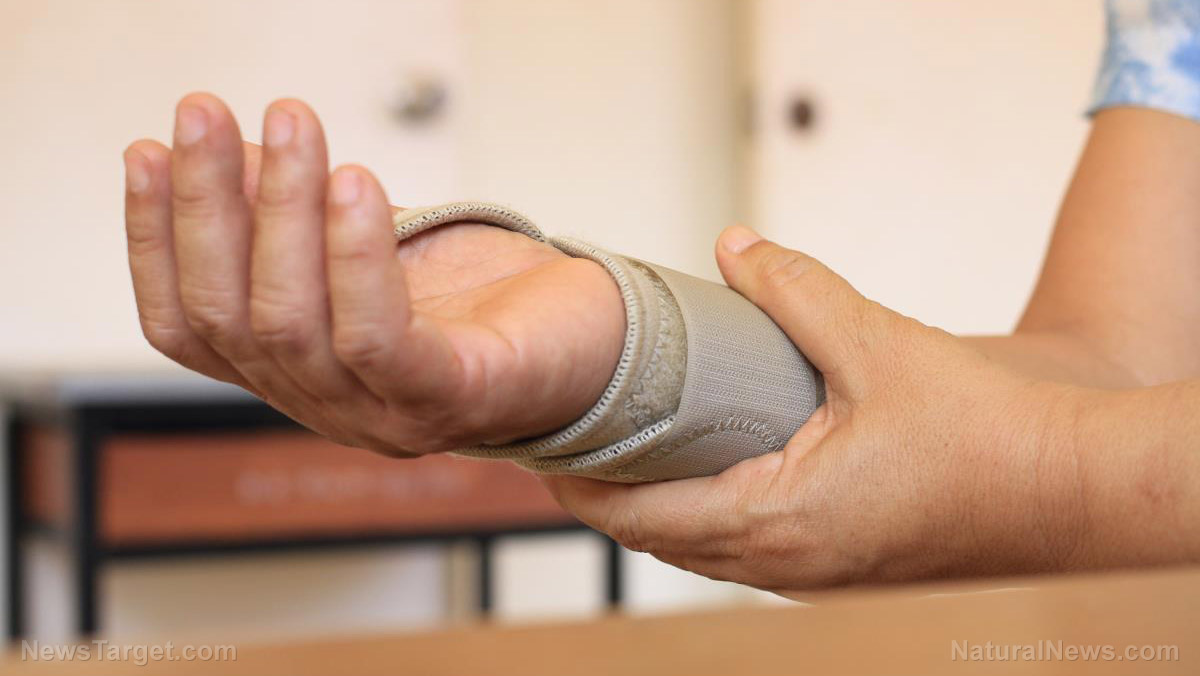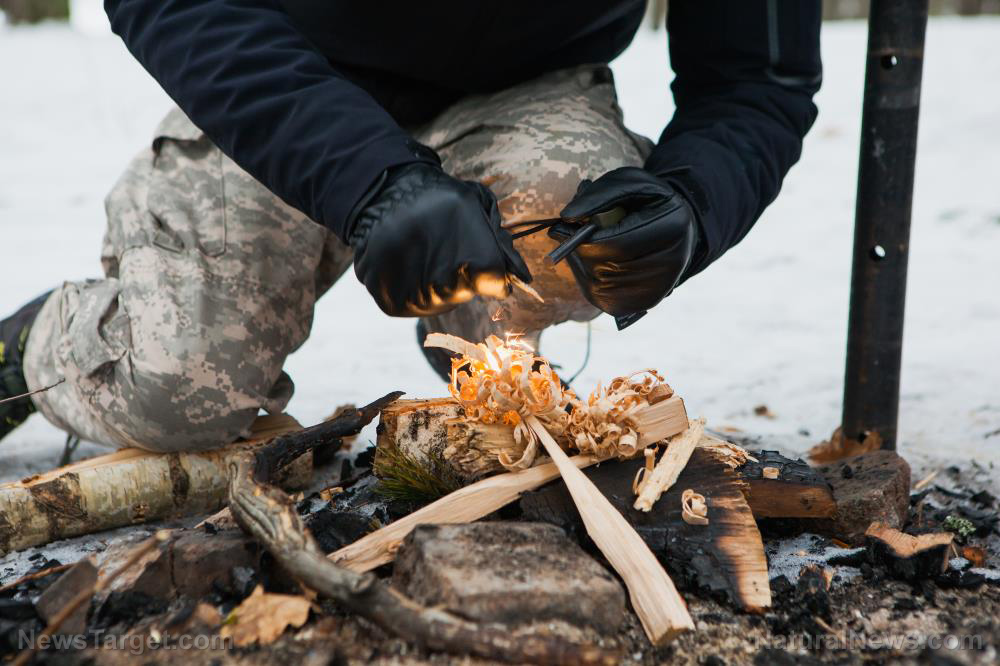What to do when SHTF: Are you prepared to deal with a grid-down scenario?
09/19/2019 / By Janine Acero

The power grid is often taken for granted: People are too busy with their individual lives every day and barely have the time or energy to be concerned about anything else. However, it’s becoming more apparent that the U.S. power grid is aging, reaching its capacity, and even under attack. Should the power grid get disabled at a moment’s notice, are you prepared to deal with and survive the ensuing chaos? (h/t to BeansBulletsBandagesAndYou.com)
Preparing for a grid-down
It’s not an exaggeration – a grid-down scenario is most likely to be followed by discord. Businesses will be interrupted or completely shut down; basic infrastructure such as communications, mass transportation, and supply chains will stop; ATM machines will not operate; facilities such as schools, workplaces, and government and public facilities may close; and the supply of clean water will be a serious issue. These situations call for planning and preparation way before SHTF to ensure the survival of everyone in your family.
Below are the main things to address when preparing for a grid-down scenario.
Backup power
One of the very first things to consider when planning for a grid-down scenario is backup power. It will help with nearly all the other problems you will encounter in a short-term power outage. If you have the funds (or consider saving for it right now) and space available, purchase a generator and learn how to use it. You also need a heavy-duty extension cord for your appliances or have an electrician hardwire your home’s electrical system.
For a long-term power outage, solar panels are a sustainable source of electricity – if you can afford the costly installation.
Lighting
If you don’t have backup power, lighting is one of the more pressing things to prepare for. You must have even just a small flashlight in your car, each bedroom, the bathroom, the kitchen, the garage, and a spare. You should also have one in your bag and on your office desk in case it happens while you’re out.
If you have money to spare, consider buying at least one industrial flashlight for your home. A crank-powered flashlight or solar-powered camping lamp are also good options.
That said, you can never have enough batteries, so stock up on lots of extras. To avoid having to buy different types of batteries, standardize your flashlights and other battery-powered gear on AA or AAA. Consider buying rechargeable batteries as well and solar-powered or crank-powered chargers.
Candles are another source of light as well as heat, but they are also potential fire hazards, so use them with caution.
Water
If you suspect the power might go out, fill buckets with water, fill your bathtub and sink, and flush your toilets. Designate a bucket for dishwater, bathwater, and cleaning water. Keep used or dirty water for flushing toilets. If the power goes out, use your water supply sparingly.
As for drinking water, keep a couple cases of water bottles around. A 55-gallon drinking potable water drum with a pump and roller base is a good option for water storage. Note that water goes stale after a long time in storage, so make sure to rotate your water supply.
In case you need to find drinking water, have a good water filter on hand – such as Big Berkey or Lifestraw – to make questionable water drinkable.
Food and cooking
Stock up on foods that can be stored without electricity or refrigeration, such as granola bars, cereals or canned food. Like water, it’s important to rotate your food supply – consume the oldest ones as you restock to keep your supplies fresh.
For foods that need cooking, consider an outdoor grill. Stockpile lots of charcoal or extra propane. Account for the space available and family size to determine how much you need. Cook meat that would go bad first.
For indoor cooking, consider a small butane stove. It can be used for cooking simple meals and can be stored in a space about the size of a briefcase.
Garbage and waste disposal
A grid-down scenario may disrupt regular garbage pickup, so work out a plan for garbage disposal and management. Like batteries, you can never have too many garbage bags on hand. Stock up on paper plates and plastic cutlery to save on dishwater. If you have to choose between less garbage or less dishwashing, consider choosing the option that saves water.
If you must burn your trash, build a burn barrel that burns safe and clean.
As mentioned above, if you suspect the power might go out, flush the toilets before it happens. If the power goes out, use dirty water for flushing. Stock up on extra toilet paper and wet wipes as well.
For long-term power outages, it’s inadvisable to use a regular toilet. The sewer or septic may rely on power to pump sewage. Having disrupted pump sewage only opens a whole ‘nother can of worms. Have a DIY portable toilet on hand and keep human waste in black plastic bags.
First-aid supplies
Whether you choose to buy or make your own first aid kit, make sure to have one for home, one for your car, and one for work.
Your kit should contain the following items that will cover your emergency medical needs for at least a week if professional help can’t reach you at once.
- Basic first aid items
- OTC and prescription medicines
- Insulin
- Inhalers
- Epinephrine (adrenaline)
Consider basic first aid training and CPR training for the whole family before they become necessary.
Communications
Keeping communication lines open is crucial in any disaster scenario. Smartphones, tablets, laptops and other electronic devices will run out of battery power, so prepare backup charging options such as a solar charger, crank USB charger and car charger. Be sure to regularly check your charging options so they won’t fail you when you need them.
Keep printed or written copies of important contact numbers and local paper maps. A crank-powered radio is also useful for keeping up with emergency broadcasts.
In a grid-down scenario, it’s important to have banknotes (especially small bills) on hand, since the businesses that do manage to stay open are most likely to only accept cash.
Would you know how to get out of buildings if the power goes out and the elevators aren’t working? Head over to Collapse.news to learn more tips.
Sources include:
Tagged Under: backup power, bug in, bug out, Collapse, communications, emergency, first-aid kit, Food storage, food supply, garbage disposal, grid down, lighting, medical supplies, off grid, power grid, preparedness, prepper, prepping, self-reliance, survival, survivalist, Waste disposal, water storage, water supply
RECENT NEWS & ARTICLES
EmergencyMedicine.News is a fact-based public education website published by Emergency Medicine News Features, LLC.
All content copyright © 2018 by Emergency Medicine News Features, LLC.
Contact Us with Tips or Corrections
All trademarks, registered trademarks and servicemarks mentioned on this site are the property of their respective owners.



















